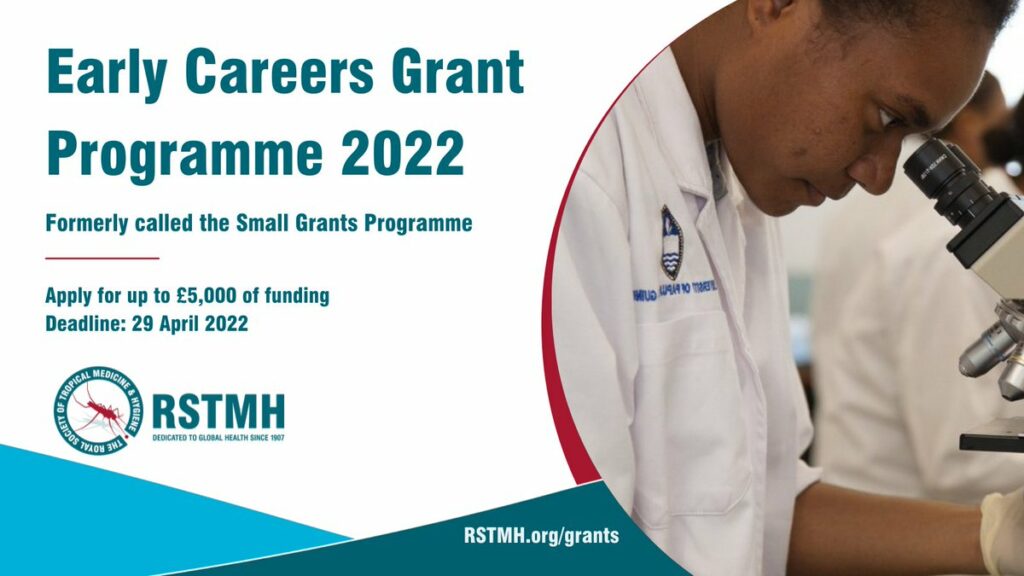Deadline: April 29, 2022
The Royal Society of Tropical Medicine and Hygiene (RSTMH) is accepting applications for the RSTMH Early Career Grants Programme. The aim of the grants is to enable early career researchers and global health professionals in the field of tropical medicine or global health to undertake clinical or scientific research and/or fieldwork.
The programme is open to early career researchers and global health professionals based anywhere in the world, who have not had research funding in their own name before.
Thematic Areas
RSTMH’s thematic priorities in its current strategy, plus other areas of health that are less well known are encouraged. These are listed below:
- Neglected tropical diseases, with a particular focus on their overlap with non-communicable Neglected Tropical Diseases (NTDs), with a particular focus on their overlap
with Non-Communicable Diseases and the Sustainable Development Goals - Malaria, with a particular focus on drug resistance
- One Health and wider planetary health. The consideration of human health alongside animal health and the environment, in the context of social, economic
and political factors - Topical issues including, but not limited to, emerging diseases
- Drug resistant infections
- Snakebite
- Mycetoma and other skin NTDs
- Co-morbidity and NCDs
- Coronavirus
- Climate change
Grant
The maximum RSTMH Early Career Grant award is £5,000 (including any taxes on relevant purchases) and for up to one year in duration.
Eligibility
- Anyone in their early research career from any nationality based anywhere in the world can apply. The overall aim of the programme is to encourage and inspire the next generation of global health leaders and innovators to explore their ideas
- Only RSTMH members can receive the funding. If successful, applicants who are not already members will have their membership funded by one of their partners, or RSTMH will deduct it from their award.
- Projects can be on any topic related to tropical medicine and global health, from across the research spectrum of lab, translation, implementation and policy.
They expect candidates not to have received a research grant in their own name before. They should be to be able to:
- Carry out research under supervision
- Have the ambition to develop knowledge of research methodologies and discipline
- Have demonstrated a good understanding of a field of study
- Demonstrate the ability to produce data under supervision
- Use critical analysis, evaluation and be able to synthesise new and complex ideas
- Competently explain the outcome of their research and value thereof to colleagues
Application
For more information, visit RSTMH.

